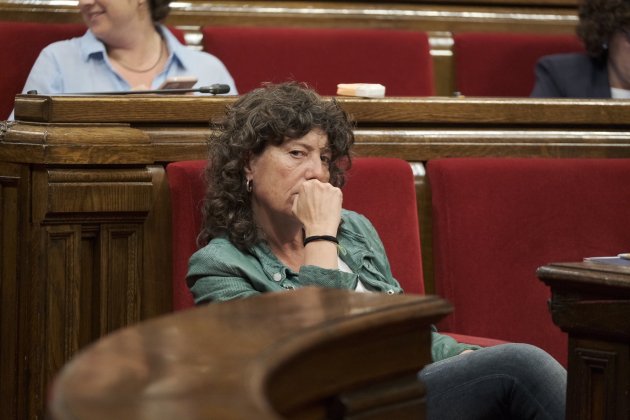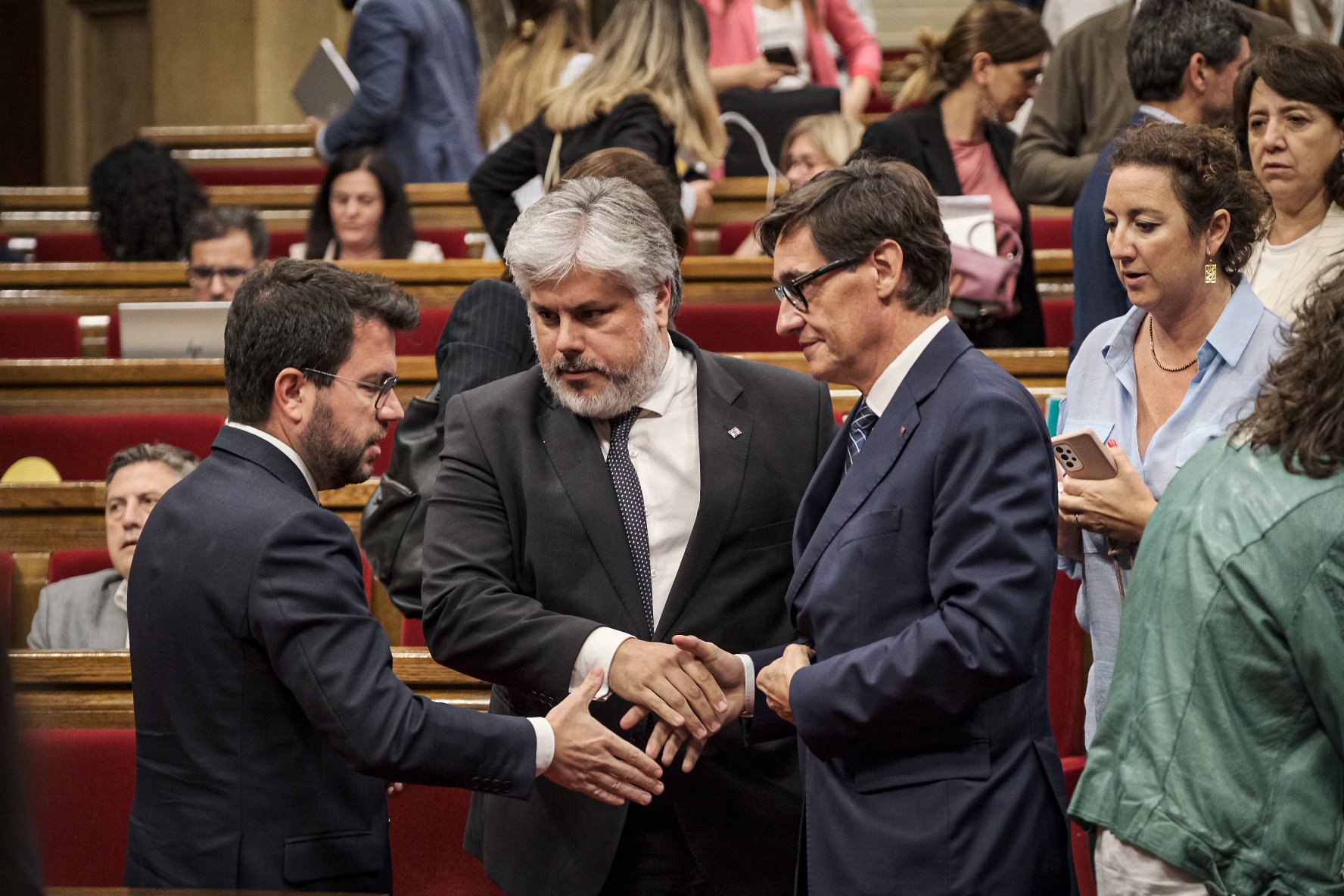Catalonia's Drought Summit failed to reach agreement on March 31st, the Friday of Sorrows, after the Republican Left (ERC) government failed to achieve consensus among the parliamentary parties for a proposal to respond to the crisis caused by the persistent lack of rain. One month and four days later, the agreement between the two major opposition parties, Together for Catalonia (Junts) and the Catalan Socialist Party (PSC), based on a bill of "extraordinary and urgent measures" against the drought proposed by Junts has forced ERC to give way and join the other parties in the agreement, thus avoiding the situation of Parliament imposing its will on the Pere Aragonès minority government in a vote over the crisis.
The proposal was thus approved with the votes in favour of PSC, ERC, Junts, Ciudadanos and the PP, votes against from En Comú Podem and the CUP and the abstention of Vox. President Aragonès and the climate action minister Teresa Jordà followed the debate from the government seats. The president did not want to be a mere spectator of the debate and at the end of the plenary session he took the floor to celebrate that today with this "broad although not complete" agreement he was willing to show responsibility, a spirit of consensus and an avoidance of electoralism on this issue. "The government will continue to put all its effort into enabling these agreements, some of which are already being implemented, to become a reality very soon", he affirmed, before calling on the parties to bring the same spirit to bear on the challenges that the drought will bring in the coming months.
The first secretary of the PSC, Salvador Illa, also took the floor to champion the dynamics of parliamentary cooperation and to call on the government "not to be afraid to make decisions". Illa guaranteed that his party will not obstruct the agreements but rather will stretch out its hand to respond to this crisis. "Now, it's your turn to lead," he warned, addressing Aragonès. In turn, the parliamentary leader of the Junts group, Albert Batet, claimed that this plenary session is a turning point in the government "having the courage" to take the necessary decisions to deal with the drought. "Today, Parliament has done its job but two things have been demonstrated, that there is an alternative and that one cannot govern without including the Parliament of Catalonia which represents the sovereignty of the people", he replied.
On the other side, from the Comuns, Jéssica Albiach, warned that this initiative "has been a battle by the PSC and Junts to show who is in charge" and called on Aragonès to lead and call a "countrywide debate" to address this serious problem with a fully-dedicated parliamentary debate on it. From the CUP, Dani Cornellà demanded that water be managed publicly "because it cannot be a business" and Nacho Martín Blanco, of Cs, explained that they voted in favour of the initiative "out of responsibility", but criticized the way the response to the drought has been conducted.
The PSC and Junts had already made clear to the government their disagreement with the drought decree that it presented to Parliament on March 22nd. However, these two parties allowed, via their abstention, for the decree to go ahead. The plan then was to introduce changes via the presentation of the measures to Parliament in the form of a bill. However, due to the lack of agreement at the Friday of Sorrows summit, the government did not present the bill, and that is why Junts was the party which put together a proposal for a "law on extraordinary and urgent measures to deal with the drought situation".

Investments and penalties
The proposal envisages promoting a series of infrastructure investments demanded by Junts with a forecast cost of 500 million euros, as well as proposals that the PSC has raised through its amendments, and others incorporated by ERC, which were essentially the works proposed at the March 31st summit. The fines regime for municipalities that fail to comply with the measures adopted to deal with the drought is another of the issues that raised differences. The final agreement defers the entry into force of the penalties until one month after the entry into force of the assistance aimed at the municipalities.

